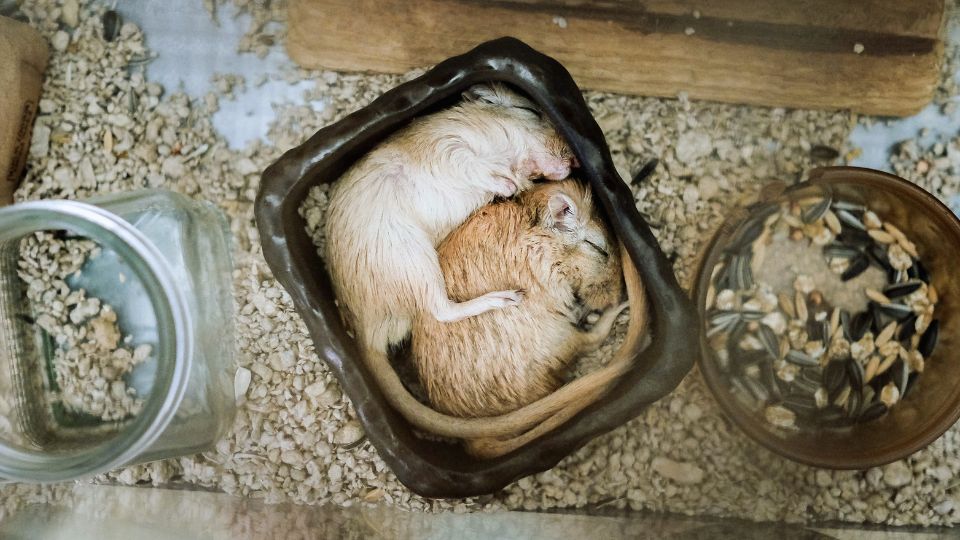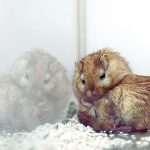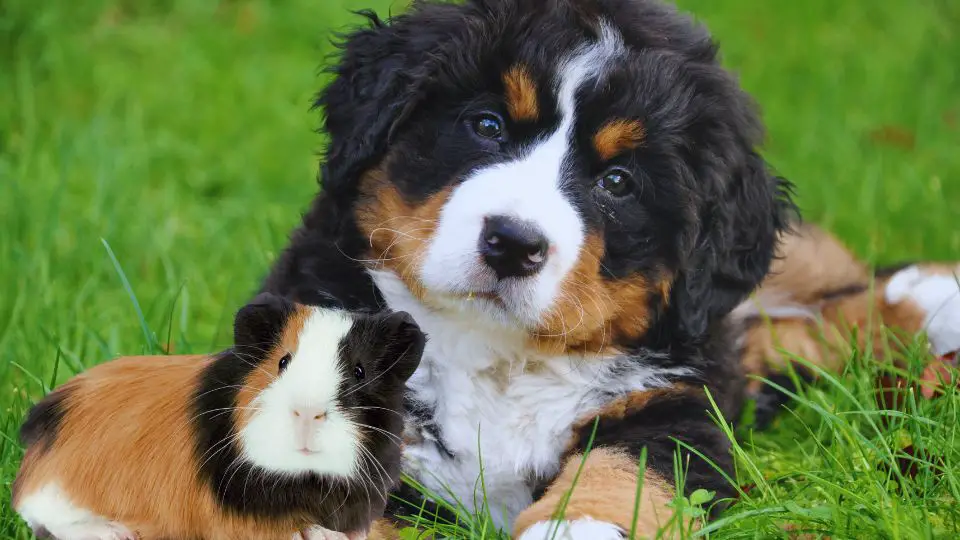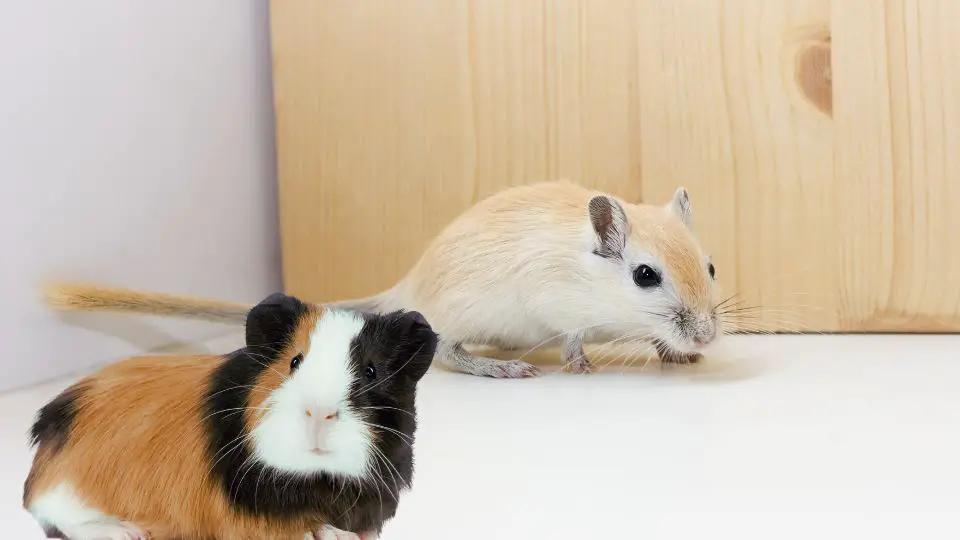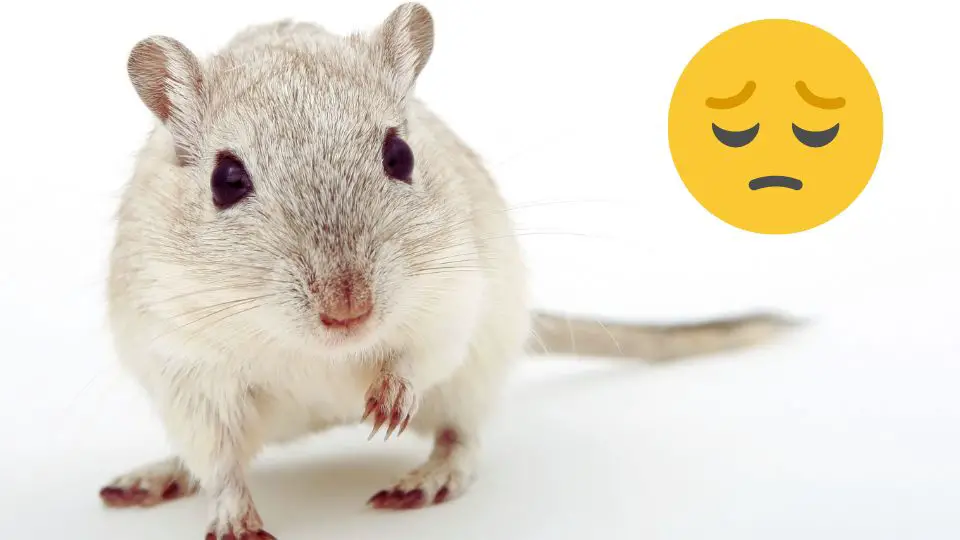Have you noticed your gerbil sleeping out in the open, away from their usual hiding spots?
If so, you may be wondering why they’ve chosen to change their sleeping habits. Gerbils are naturally cautious and instinctively seek secure and hidden places for sleep. However, there are various factors that can influence their choice of sleeping location.
Understanding why your gerbil is sleeping out in the open can provide insights into their behavior and well-being.
Comfort and Security
Gerbils, like many other small rodents, have unique behaviors and preferences when it comes to sleep. While some pet owners may be surprised to see their gerbil sleeping out in the open, this behavior can actually indicate a sense of comfort and security in their environment. In this article, we will explore the reasons why gerbils choose to sleep out in the open and what it says about their overall well-being.
Feeling Secure and Comfortable
Gerbils are naturally burrowing animals, and in the wild, they create intricate tunnels and burrows to provide safety and protection. In captivity, gerbils may not have access to deep burrows, but they still have an innate need for security.
In our experience, when a gerbil chooses to sleep out in the open, it often indicates that they feel secure in their surroundings. It suggests that they trust their environment and feel safe enough to relax and rest without the need for additional hiding spots.
Sense of Safety and Trust
Sleeping out in the open can also indicate a gerbil’s level of trust in their human caretakers. Gerbils are prey animals by nature, and they have a natural instinct to stay alert and hide from potential predators.
When a gerbil feels comfortable enough to sleep out in the open, it suggests that they trust their environment and perceive it as safe. It’s a positive sign that they have developed a bond with their owners and feel secure enough to let their guard down.
Providing a suitable and secure habitat for your gerbil is crucial to promoting their comfort and security. Ensure that their enclosure has enough bedding material for burrowing and hiding, as well as cozy sleeping areas where they can retreat if they choose to do so.
Additionally, maintaining a calm and quiet environment and providing regular interaction and gentle handling can help foster a strong bond of trust between you and your gerbil.
Where do gerbils like to sleep?
Gerbils have certain preferences when it comes to their sleeping arrangements. While their choices may vary based on individual preferences and environmental factors, gerbils generally prefer to sleep in secure and cozy areas within their habitat. Here are some common sleeping spots that gerbils tend to favor:
- Burrows: Gerbils are burrowing animals by nature, and they often create elaborate burrow systems in the wild. In captivity, they may dig tunnels in their bedding material or utilize hideouts, tunnels, or tubes provided in their habitat to create a cozy burrow for sleeping.
- Nesting areas: Gerbils enjoy creating nests using nesting materials, such as paper strips, hay, or soft bedding. These nests provide them with a warm and comfortable spot to sleep. They may construct their nests in designated nesting boxes, small shelters, or in corners of their enclosure.
- Hiding spots: Gerbils are known to seek out hiding spots when they sleep. They may choose to sleep inside small shelters, tunnels, or even inside enclosed spaces created by arranging materials like cardboard boxes or ceramic tubes.
- Elevated platforms: Some gerbils may prefer sleeping on elevated platforms or shelves in their habitat. These areas give them a vantage point to observe their surroundings while providing a sense of security and safety.
Note that gerbils are crepuscular animals, meaning they are most active during dawn and dusk. They may retreat to their sleeping spots during the day for rest and sleep, but they can also take short naps throughout the day.
As a responsible gerbil owner, providing a variety of sleeping options in their habitat allows them to choose the spot that suits them best. Observing your gerbil’s behavior and preferences will help you identify their preferred sleeping areas. Remember to ensure that their sleeping spots are clean, comfortable, and free from any potential hazards to promote their well-being and restful sleep.
Temperature and Ventilation
Gerbils have a natural preference for moderate temperatures, typically ranging between 65°F and 75°F (18°C to 24°C). Extreme temperatures can be stressful and potentially harmful to their well-being. When considering their sleeping location, gerbils may instinctively seek areas that provide the right temperature for their comfort.
In warmer environments, gerbils may look for cooler spots in their enclosure to escape excessive heat. This could include sleeping on or near cooler surfaces or seeking out areas with increased airflow. On the other hand, in colder environments, gerbils may choose warmer areas to maintain their body temperature. These areas could be closer to a heat source or areas with insulation to conserve heat.
Ventilation: Fresh Air and Airflow
Proper ventilation is essential for maintaining a healthy environment for gerbils. Adequate airflow helps remove stale air, control humidity, and prevent the buildup of harmful gases. When it comes to choosing a sleeping location, gerbils may show a preference for areas with good ventilation. This can be evident in their decision to sleep in open spaces or near areas with better air circulation.
Social Dynamics
Gerbils live in organized social structures where a hierarchy is established. This hierarchy determines the dominant and subordinate individuals within a group. When it comes to sleeping, the social dynamics among gerbils play a role in determining where they choose to rest.
Dominant gerbils, typically the alpha or dominant pair, have the privilege of claiming preferred sleeping areas within the habitat. They may choose locations that offer them a sense of security and control, such as hidden corners or secluded spots. These dominant gerbils often take charge of the best sleeping spots and may exclude others from accessing those areas.
On the other hand, subordinate gerbils may have limited choices for sleeping locations. They may need to find alternative spots that are less desirable or more exposed. This is because dominant gerbils can display territorial behaviors and may guard certain areas as their own.
Group Sleeping
While dominant gerbils may have the upper hand in claiming preferred sleeping areas, gerbils are generally social animals and prefer to sleep in close proximity to their companions. Group sleeping is a natural behavior that helps them maintain a sense of safety and connection.
In a group setting, gerbils may choose to sleep together in piles or cuddle up next to each other. This close physical contact not only provides warmth but also strengthens social bonds within the group. Gerbils find comfort in the presence of their fellow group members, and group sleeping promotes a sense of security and well-being.
Health and Well-being
Gerbils are generally active and curious creatures. You should pay attention to any changes in their behavior or routine, as these can be indicators of underlying health issues.
Common changes to observe include alterations in appetite, water consumption, energy levels, grooming habits, or mobility. Changes in behavior, such as increased aggression, excessive scratching, or abnormal vocalizations, can also signal health concerns.
If you notice any significant or persistent changes in your gerbil’s behavior or health, it’s advisable to consult with a veterinarian who specializes in exotic pets. They can provide a comprehensive examination and determine the cause of the changes. Early detection and intervention are vital to address health conditions promptly and ensure the best possible outcomes for your gerbil.
Conclusion
In conclusion, gerbils may choose to sleep out in the open for several reasons. It could be a sign of their comfort and trust in their environment, or it could be influenced by factors such as temperature, ventilation, social dynamics, or health conditions. While it’s important to provide a variety of sleeping options for your gerbil, it’s equally important to observe their behavior and ensure they have a safe and secure habitat.
By creating a suitable and comfortable environment for your gerbil, you can support their natural sleeping preferences and contribute to their overall well-being. If you have any concerns about your gerbil’s sleeping habits, it’s always a good idea to consult with a veterinarian or a gerbil expert for further guidance and support.

